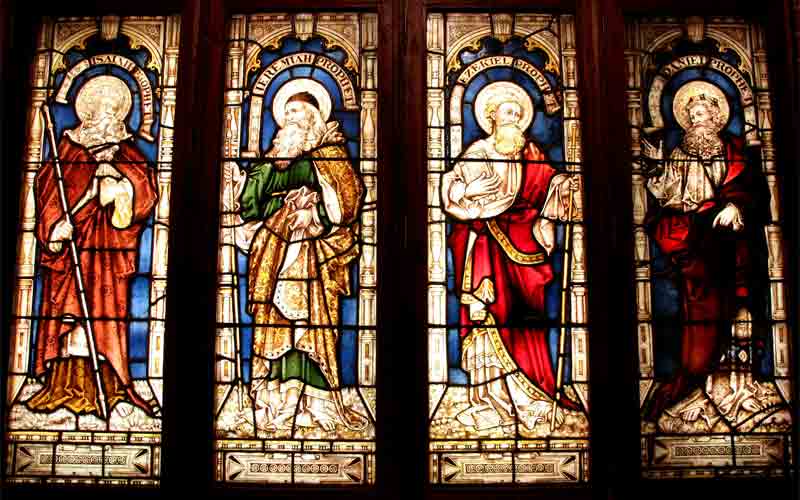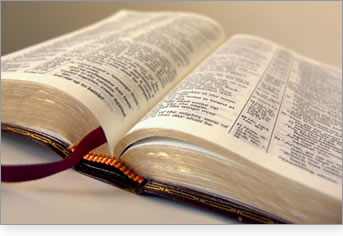Introduction:
In today's post we are going to begin looking at one of the two major events which will follow the rapture of the church. Readers may consult my last two posts on the rapture of the church here http://www.growingchristianresources.com/2023/03/introducing-christs-return-for-his.html and here http://www.growingchristianresources.com/2023/03/the-major-bible-passages-on-rapture-of.html.
Two major events that will follow the rapture of the church.
The one event will involve the rewarding of Christians for how they lived their lives for Jesus while here on this earth. This event, called "The Judgment Seat of Christ" or "The Judgment Seat of God" (see 1 Corinthians 3:10-15; 2 Corinthians 5:10; Romans 14:10) will occur in Heaven when all Christians, deceased and living, will be caught away by Jesus and given glorified, physically transofrmed bodies. The judgment seat of Christ will not be about whether someone has trusted in Christ as Savior (this of course is a pre-requisite in becoming a Christian). Rather, the issue at stake will be that of faithfulness to the Lord. This "Judgment of believers" or "Judgment Seat of Christ" will represent a heavenly theatre of God's activity following the rapture and will last the duration of the final seven years of world history.
The second event, the Tribulation period, which we could refer to as an "earthly theatre", will feature God's Divine wrath poured out upon this world. This event will be contemporary with the rewarding of the saints spoken of in the above paragraph. Unlike the Judgment Seat of Christ, the focus of the Tribulation will not be the Church, since the Church will had been raptured prior to the Tribulation. Instead, Israel's preparation for her Messiah will be one of three foci (with the two other foci being Divine judgment of Evil and mass conversion of people to Christ from the nations) - see Zechariah 12:10; 2 Thessalonians 2:8-12; Revelation 7:9).
The Tribulation period is the focus of today's post. In particular, we want to understand how the Old Testament introduces and progressively reveals this important teaching of Bible prophecy. Author Tim Lahaye notes the following about the importance of gaining familiarity with the Tribulation period:
"In His masterful Olivet Discourse, our Lord warned that this world has yet to see a time of "great tribulation", such as was not since the beginning of the world to this time, no, nor ever shall be (Matthew 24:21). And those who take the Bible literally find it signficant that the Tribulation period is given more space in Scripture than any other comparable event, There is more space allocated to the Tribulation than the 1,000-year Millennial Kingdom, heaven, hell, or any subject except salvation and the promise of Christ's second coming. It is mentioned at least 49 times by the Hebrew prophets and at least 15 times in the New Testament." (Tim Lahaye and Thomas Ice, Charting the End Times, page 56).
Even though I won't cover all 49 Old Testament texts on the tribulation period, what follows is a survey of nine of the more major passages to give us a sense of the Old Testament's progressive revelation on the subject. This is important to know, since Jesus and the Apostles refer often to the tribulation period in the New Testament.
How the Old Testament progressively tells us of the future Tribulation period.
1. Deuteronomy 4:26-31 - The First Mention of the Tribulation Period.
Note what Moses writes in Deuteronomy 4:30-31
"When you are in distress and all these things have come upon you, in the latter days you will return to the Lord your God and listen to His voice. 31 For the Lord your God is a compassionate God; He will not fail you nor destroy you nor forget the covenant with your fathers which He swore to them."
The above text stands as perhaps the first mention in the Bible of a period of time that Jesus calls "the tribulation" (Mark 13:19). God lays out the prophetic history of Israel through the Old Testament and human history (4:26-28) with reference to her going through a time of great difficulty and deliverance by her Lord in 4:29-31. At this early stage in the Bible's revelation of this subject, Israel's whole history and the tribulation period are treated as one, seamless history.
2. Isaiah 13:6-18 - The day of the Lord is associated with the Tribulation
The heart of this passage is expressed in Isaiah 13:9-11a
"Behold, the day of the Lord is coming,Cruel, with fury and burning anger, To make the land a desolation; And He will exterminate its sinners from it. 10 For the stars of heaven and their constellations will not flash forth their light; The sun will be dark when it rises and the moon will not shed its light. 11 Thus I will punish the world for its evil and the wicked for their iniquity."
Twice in this passage we find reference to what is called "the day of the Lord". We are not told the duration of this "day" in the passage, only its character and purpose. We often see the phrase "Day of the Lord" used in two respects. It can refer to a specific judgment of God, as in the case of God's use of the Babylonians in destroying the city of Jerusalem (see Lamentations 2:22-23). Such "Days of God"or "Days of the Lord" are spoken of throughout the Old Testament, and speak of God's temporal judgment on a nation.
The second sense we see usage of the term "Day of the Lord" has to do with what we call God's "eschatological wrath", that is, His wrath poured out upon the earth for the entire duration of the tribulation period or what will be the Great White Throne Judgment spoken of in Revelation 20.
3. Isaiah 17:4-11 Israel will be prepared to meet her Lord
Isaiah 17:7 notes "In that day man will have regard for his Maker and his eyes will look to the Holy One of Israel."
4. Jeremiah 30:4-11 The Tribulation is termed "The time of Jacob's distress or trouble"
It is in this passage that we gain further evidence of God turning His attention back to Israel. During the Tribulation period God will prepare Israel to meet her Messiah through a process of chastening, purification, purging and protection. This is what we read in Jeremiah 30:7-9
‘Alas! for that day is great, There is none like it; And it is the time of Jacob’s distress, But he will be saved from it. 8 ‘It shall come about on that day,’ declares the Lord of hosts, ‘that I will break his yoke from off their neck and will tear off their bonds; and strangers will no longer make them their slaves. 9 But they shall serve the Lord their God and David their king, whom I will raise up for them."
5. Ezekiel 20:33-38 The tribulation period will purify Israel to enter into the Lord's Kingdom
Ezekiel 20:38 states -
"and I will purge from you the rebels and those who transgress against Me; I will bring them out of the land where they sojourn, but they will not enter the land of Israel. Thus you will know that I am the Lord."
Thus far in our study of the Tribulation period, we have discovered that the judgment of the earth will occur and that the preparation of Israel for her Messiah will be the specific focus. As we follow the theological breadcrumbs concerning the Tribulation period, we are getting a sense of its purpose in the plan of God.
6. Daniel 9:26b-27 The duration and details of the Tribulation period
When we turn to the prophet Daniel, we come upon Daniel 9:23-27, wherein we read of the so-called 'seventieth week of Daniel", yet another descriptor of the tribulation period. Daniel 9:26b-27 tells us the following about the Tribulation period:
"and the people of the prince who is to come will destroy the city and the sanctuary. And its end will come with a flood; even to the end there will be war; desolations are determined. 27 And he will make a firm covenant with the many for one week, but in the middle of the week he will put a stop to sacrifice and grain offering; and on the wing of abominations will come one who makes desolate, even until a complete destruction, one that is decreed, is poured out on the one who makes desolate.”
It is in this passage that we first gain access to the time frame of this period - seven years. Daniel's prophecy also unfolds another chronological feature: that this seven year period will be at the end of a 490 year period of time prescribed for Israel by God with regards to His program for her (hence the term "Daniel's seventieth week"). The final "seven" in the prophecy will be divided into two parts of 3 1/2 years each, featuring a tyrannical ruler called "the prince", who especially in the latter half of this period will unmask his true intentions.
7. Daniel 12 reveals details about the latter 3 1/2 years of the tribulation, called "The Great Tribulation"
We appeal again to Daniel's prophecy, this time in Daniel 12:1
“Now at that time Michael, the great prince who stands guard over the sons of your people, will arise. And there will be a time of distress such as never occurred since there was a nation until that time; and at that time your people, everyone who is found written in the book, will be rescued."
Jesus refers to this text in His final public sermon - the Olivet Discourse - in Matthew 24:15 and Mark 13:14. We can note the importance of Daniel 12 by what Jesus says about it in Mark 13:14
“But when you see the abomination of desolation standing where it should not be (let the reader understand), then those who are in Judea must flee to the mountains."
In so far as Jesus makes predictions of what was then the coming destruction of Jerusalem in 70 A.D., yet the international and global scale of the scene in Daniel 12:1 tells us that Jesus is using the destruction of Jerusalem in 70 A.D as a template for understanding what will take place in the tribulation period. As you read on down through Daniel 12, you discover the specific time frame of this vision to occur in the future and in the same latter 3 1/2 year period that Daniel spoke of in Daniel 9:23-27. Daniel's prophecies in 9:23-27 and chapter 12 form the foundation of Jesus' teachings on the tribulation period in His Olivet discourses of Matthew 24, Mark 13 and Luke 21.
8. Amos 5:18-20 reveals the character and fearsome time that will be the Tribulation period.
Amos'prophecy about the Tribulation period uses the phrase "Day of the Lord" to define this period. In one of the most descriptive passages, Amos gives us a taste of what this future period will be like:
Or goes home, leans his hand against the wall And a snake bites him. 20 Will not the day of the Lord be darkness instead of light, Even gloom with no brightness in it?"
9. Zechariah 14:1-4 The end of the Tribulation period witnesses the return of the Messiah to the earth.
Zechariah 14:4 reads - "In that day His feet will stand on the Mount of Olives, which is in front of Jerusalem on the east; and the Mount of Olives will be split in its middle from east to west by a very large valley, so that half of the mountain will move toward the north and the other half toward the south."
This final look at the teaching of the tribulation period in the Old Testament reveals that this future era will close with Jesus coming back to earth to rescue the Jews from the Anti-Christ and warring nations.
Conclusions
In this fly-over of the Bible's teaching of the Tribulation period, we have attempted to look at the major Old Testament Prophecies that speak specifically about it. We have concluded the following:
1. It will be an unprecedented time of human history, occurring at the end of this age. Being that the Old Testament predicts its uniqueness, the likelihood of it referring to a general pattern of tribulation that covers the church age or some other broad period of history is pretty slim.
2. The Tribulation period's primary purposes include judging the world and preparing Israel to meet her Messiah
3. The Tribulation period's duration will be seven years. The first half is hardly mentioned, with the overwhelming focus on the events of the latter 3 1/2 years that Jesus calls later on "The Great Tribulation" in light of Daniel's prophecies.
4. A Tyrannical ruler, called "Anti-Christ", will attempt to blaspheme God and lead the whole world astray in outright rebellion again God.
5. Christ's rapture of the church will precede this event. His return to earth to rescue Israel will close out this period of time. The rapture and His second coming constitute part one and part two of His overall return, with the tribulation nested in between both.











